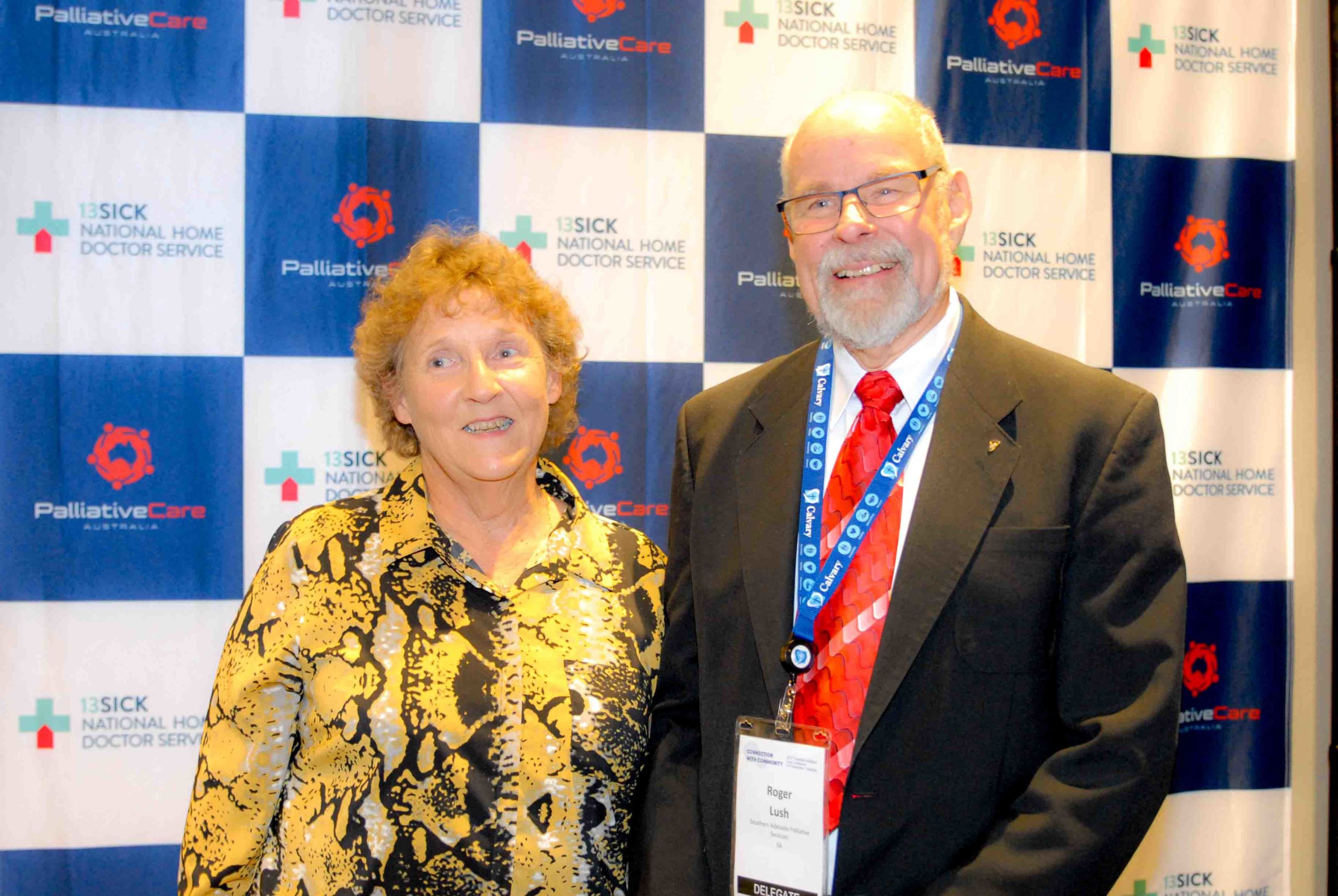2017 National Palliative Care Award winners… where are they now? Roger Lush
2017 National Palliative Care Award winners… where are they now? Roger Lush
Tuesday, September 10, 2019
In the leadup to the 2019 National Palliative Care Awards (to be announced at the Oceanic Palliative Care Conference in Perth), we've been catching up with some past award winners. Today we hear from Roger Lush, a dedicated palliative care volunteer from Laurel Hospice in Adelaide, SA
You received Palliative Care Australia’s award for Outstanding Achievement by a Volunteer in 2017. What did winning the award mean to you?
I don’t believe it should be viewed as an award to an individual because no individual can win such recognition without the support of a team. I believe winning this award reflects the work performed by all volunteers in Laurel Hospice and indeed all volunteers working with South Australian Palliative Care. We must not forget the work of volunteers in the community, those working in the well- being centre, art therapy and bereavement counselling. We are fortunate to have volunteers giving their time for the Laurel Palliative Care Foundation as well as support volunteers. An individual can achieve so much but a team can achieve so much more.
Are you still volunteering in palliative care? If so can you tell us a little bit about your role and what you do on an average day?
I am still working as a volunteer in the Laurel Hospice where last November I was appointed Team Leader. Generally I work two 4.5 hour shifts a week, Wednesday and Saturday mornings. There are no two shifts alike, but in general, it includes providing fresh water jugs for patients and morning tea, (tea, coffee, milo or drinking chocolate) with a piece of cake for patients and their families. This gives me an excellent opportunity to have client contact.
In Laurel Hospice we are fortunate to have our own quilts and crochet blankets. These help to take away that sterile feeling that you often experience in a hospital. As volunteers we have our own laundry for washing these items. Flowers need to be cared for and the patients’ kitchen kept clean.
However, patients always come first but sometime in the future they will die so therefore I place a great deal of importance on a patient’s family, after all they will be “left behind”. Our wonderful doctors and nurses do all they can to give the patient a “good death” whereas we as volunteers need to do all we can to support the patient but importantly their family.
What do you most enjoy about your role?
I absolutely love to sit with patients and their families. It seems to me that most patients take this opportunity to mentally review their lives; it’s like writing your own report card. I enjoy spending this precious time with them, in fact I feel very privileged. I also enjoy the interaction I have with the staff, in particular the opportunity of working with the nurses.
Do you have any advice for people who might be thinking about volunteering in palliative care?
If you are a “people person”, don’t just think about it, act now! If you want to have a better understanding of death, there is no better opportunity than being a palliative volunteer. Birth is a natural part of life, so is death. Without death there is no life.
What goals would you like to see for the future of palliative care in Australia?
I am fortunate to be a volunteer with Southern Adelaide Palliative Services. As a service we provide care for palliative patients in the southern suburbs of Adelaide including patients in the community as well as those in the inpatient unit at Laurel Hospice. Well-being, art therapy, bereavement counselling, and the Delta Dog and music programmes are all important. We are also fortunate to have an excellent pastoral carer.
The future is in education. Unfortunately, Australians are one of the worst countries in the world willing to discuss death. Europeans, particularly those in the “Eastern Block” are more likely to talk about death than Australians. In India, people openly talk about death and almost revere it. Surely we need to change Australians attitude to death; we readily accept and talk about birth but avoid talking about death.
The “die-a-logue café” is a start but maybe we need to do more in the senior schools.
Are you attending 19OPCC – if so what sessions are you most looking forward to?
Unfortunately I am unable to attend 19OPCC but I can assure you I will be there in Spirit.
